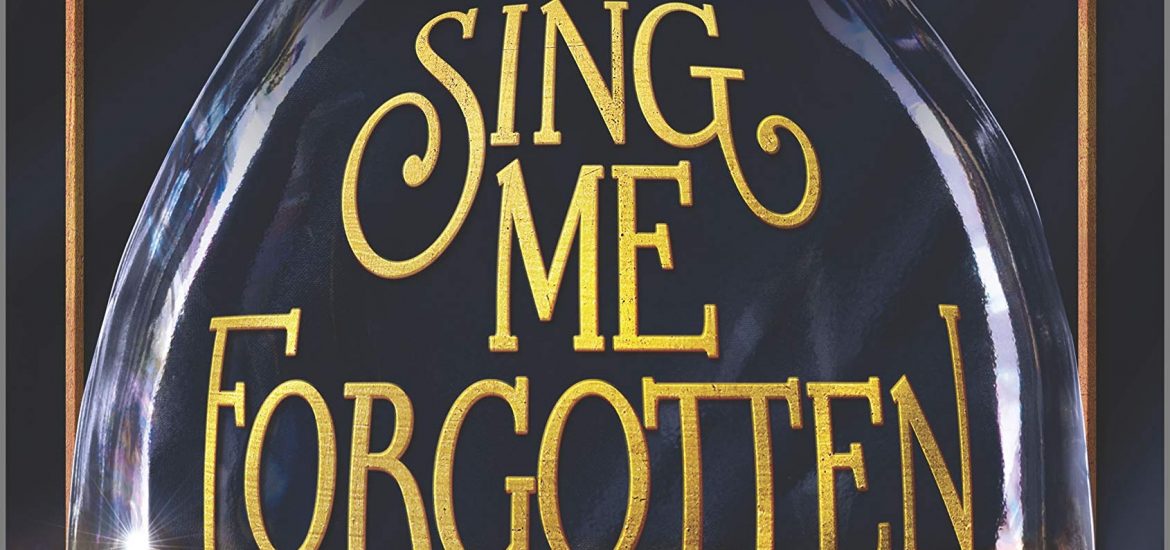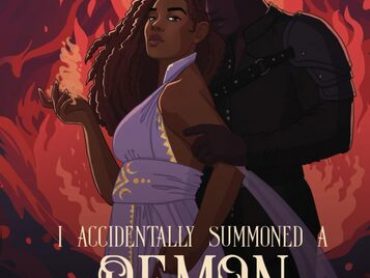This month, Jessica S. Olson is releasing her debut novel Sing Me Forgotten. The main character Isda was cast into a well at birth due to a damning facial disfigurement. And the signs of a dangerous, outlawed ability–the power to manipulate memories. She was saved and sequestered away by the owner of the city’s opera house. Imprisoned in opulence and always out of sight, she works for the opera to keep ticket sales high by manipulating the minds of patrons and performers.
But when she meets Emeric Rodin, his charm and his angelic voice upend her solitary world. Especially when she discovers clues within his memories to a way to finally break free of her gilded prison. But the price of freedom is steeper than Isda could ever know. For even as she struggles with her growing feelings for Emeric, she learns that in order to take charge of her own destiny, she must become the monster the world tried to drown in the first place. Jessica S. Olson spoke with YEM about how she retold the classic story of The Phantom of the Opera!
Young Entertainment Mag: You are releasing your debut novel. How does that feel?
Jessica S. Olson: It is really exciting! I’ve dreamed of becoming an author since I was a child. So having that dream actually come true is an extremely surreal experience! It’s also a bit terrifying letting go of this book. Allowing it to exist outside of me, since it has been all mine for so long. But it no longer belongs to just me. And while it’s scary sending it out into the world, I can’t wait for readers to discover Isda and Emeric’s world!
YEM: Your new book is called Sing to Me Forgotten. What is the book about?
Jessica: It is a fantasy, gender-swapped retelling of The Phantom of the Opera! It tells the story of a young girl who has must fight both the outside world that fears her as well as the inner darkness that tempts her in order to save the life of the young man she loves. It’s got a music-based memory magic system, a forbidden romance, intrigue, betrayal, murder, and revenge.
YEM: This book is a gender-swapped retelling of The Phantom of the Opera. What is it about this story that made you want to create your own version?
Jessica: I grew up listening to and playing music from the Broadway show, and I loved the book. I always loved to daydream of becoming a star like Christine Daae, entrancing audiences from the stage. It wasn’t until I actually saw the play as an adult, though, that I realized how much more deeply I connected with the Phantom character.
Due to a medical eye condition that affects my appearance, I dealt with a lot of teasing and bullying growing up. So I saw many aspects of myself reflected in the masked man onstage. Because of that, when I later came up with the idea to do a retelling, I knew it needed to be from his perspective. I also wanted to really empower a young woman in a way that the original play does not. That is what led me to doing a gender-bent version. All of these things combined to create the story that it has become!
YEM: You’re very interested in France and French culture. Is that what drew you to the story of The Phantom of the Opera?
Jessica: I do love France and French culture. I did a study abroad in Paris in college and earned a minor in French! However, while I will say that the French influence of Phantom was a factor in my adoration for it, I think the biggest thing that drew me to telling this story was my love for music. I started playing the piano at age six. Plus, I picked up flute at age eleven, did vocal instruction and choirs all throughout my adolescence. And even play organ for my church now as an adult!
Music has been a very prevalent part of my life. And considering the aforementioned discrimination I faced in my youth that drew me to telling the Phantom’s side of the story, I also really saw his love and passion for music as a mirror of my own, and that was something I loved exploring as I wrote Sing Me Forgotten.
YEM: How familiar were you with this tale before writing your book?
Jessica: I was very familiar with it! I had read the original novel upon which the Broadway play is based. I’ve seen the play on and off Broadway, and also seen Phantom: The American Musical Sensation by Maury Yeston, which is another, lesser-known musical based on Gaston LeRoux’s novel. I visited the Paris Opera House when I was in Paris in 2009. And know most of the music from the Broadway play by heart! Telling this story really was a work of passion for the story and bringing it to life in a new way.
YEM: Are you a fan of musical theater and opera?
Jessica: I love musical theater! I participated in my high school’s musicals as a teen, and I’ve even done some community theater as an adult. In a pre-covid world, I attended musical theater productions as often as my budget would allow! As far as opera goes, I have only seen the one production I went to at the Paris Opera House while I was on my study abroad, which I certainly enjoyed!
YEM: If you could create a gender-swapped version of any other story, what would you choose?
Jessica: I’d absolutely love to do a villain’s POV Swan Lake retelling one day, but make it even darker and infuse it with some horror-themed magic!
YEM: How does changing the perspective of The Phantom of the Opera change the overall story? Do the dynamics between the characters change?
Jessica: Changing the perspective of The Phantom of the Opera allows audiences to explore the cruelties of our beauty-obsessed world in a very direct way. I wrote this book for teens, who struggle intensely nowadays due to the appearance. (Based demands of a world with social media and who are forced to compare their unfiltered lives with the perfect, Instagram-worthy photos of their friends.) I felt it was particularly important to show how damaging allowing the world to dictate your worth can be.
I also felt that swapping the genders so that the Phantom was a young woman and the Christine character was a young man allowed me to empower young girls. Show them their stories are worth telling even if they aren’t “pretty.” And address some of the misogyny in the original production head-on.
YEM: What’s your favorite quote from the book?
Jessica: My favorite quote will forever be, “If they want me to be a nightmare, then a nightmare I shall be.” I love it because it sums up Isda’s descent into darkness—that she was forced there by a society that would not allow her to be anything but a villain.




